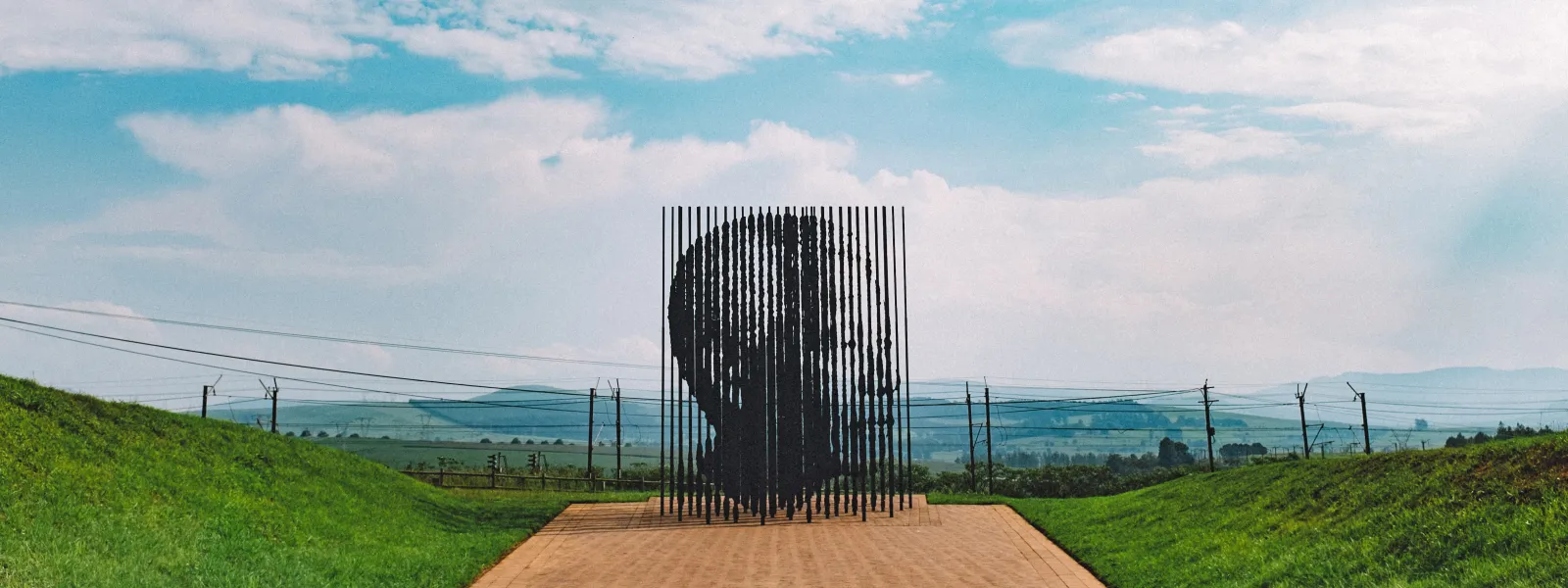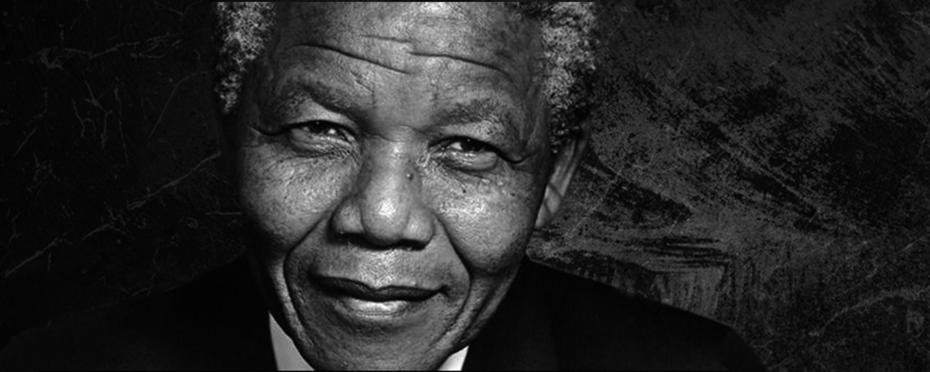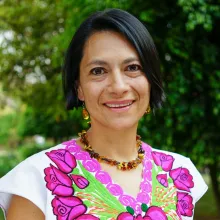
Mandela: lessons in tribal leadership to effectively protect the environment
“It always seems impossible until it becomes reality.” —Nelson Mandela
Nelson Mandela died one month ago. Much has been written about him since then, and he has been globally honored like none other.
Despite possible year-end amnesia and at the risk of sounding cliché, I am writing this post in his honor. I’m particularly interested in highlighting four leadership qualities Mandela possessed, and pointing out how those same qualities can help us be more effective environment defenders.
Nelson Rolihlahla Mandela was born in Qunu, a Xhosa community in the state of Transkei, in the southeastern part of South Africa. Mandela’s birth name Rolihlahla means “troublemaker,” in the Xhosa language. But a schoolteacher began calling him Nelson, according to the custom of calling children by their English, rather than African, names. Another of Mandela’s names—Dalibunga (or founder of the bunga)—was given to him during a traditional initiation ceremony at the age of 16. He was also called Madiba, a name given by his tribe in honor of a Tembu chief who ruled during the 18th Century.
According to tradition, Mandela was destined to be an advisor to the Tembu king. But he ended up being a leader far beyond the borders of the Transkei region, and changed the world even beyond South Africa.
He was a leader of reconciliation and compromise. He had an enormous capacity for forgiveness and an ability work peacefully with, rather than seek revenge against, those who oppressed his people for centuries, and imprisoned him for 27 years.
In what follows, I’d like to discuss four characteristics that Mandela exemplified. If we emulate these qualities, we can, like Mandela, help make the world a freer and more just place.

1. Values and a common cause as an absolute guide to decisions
“There is no easy walk to freedom anywhere, and many of us will have to pass through the valley of the shadow of death again and again before we reach the mountaintop of our desires.”
Mandela lived according to his values. He had the goal of ending apartheid and securing freedom for himself and his people. His desire for freedom guided each of his actions, including after he succeeded in ending apartheid in his country.
Over the decades of his struggle, including more than a quarter century in prison, there were undoubtedly moments of despair and fear in which other people would have given up hope. Mandela and his colleagues, however, persisted. The cause that united them was greater than their individual will, and stronger than even Mandela himself.
Although we cannot compare our work to the struggle against apartheid, we have indeed made important progress by rallying behind a common cause. One recent victory, in 2011, was a change in the Mexican Constitution in favor human rights. It would not have been possible without the joint work of our partner organizations, academia, and the Office of the High Commissioner of Mexico.
2. Conscientious, disciplined, committed and coherent
“Running taught me valuable lessons. In cross-country competitions, training counted more than intrinsic ability, and I could compensate for a lack of natural aptitude with diligence and discipline. I applied this in everything I did.”
Persistence and discipline were qualities that made a big difference for Mandela in reaching his goals. His commitment to every challenge, his clarity, and even his limitless stubbornness still manage to surprise us.
His success was not achieved through supernatural powers, nor was there a single moment in which everything magically changed. On the contrary, Mandela’s achievements were a consequence of a life dedicated to study, work, and learning. He was constantly listening to others, building strategies, and rethinking them in order to achieve his goals. He made mistakes and bad decisions, but also had successes that collectively helped achieve his dream of freedom.
Sometimes we feel that the results are impossible. In fact, they are, if we’re trying to reach them immediately. At AIDA, we have learned this in the case of La Oroya, in which we have had to be persistent and disciplined in order to achieve lasting results. With the people of La Oroya we have worked for change for 15 years, and we will continue until we achieve it.
3. All on the same side — there is no good vs. bad
“If you want to make peace with your enemy, you should work with your enemy. Then he will become your partner.”
I often wonder where South Africa would be if Mandela and his colleagues had not reached small agreements, if they had not overcome their many differences and moved forward.
Moreover, what would have happened in that country if they had not been able to transcend hatred toward their oppressors in order to find peaceful and coordinated solutions? Surely, the outcome would have been a civil war with unimaginable consequences.
One element that avoided such a catastrophe was Mandela’s constant ability to find solutions, reach agreements, maintain dialogue, and demand concrete results toward real change. No doubt, the process was not easy, quick, or smooth. But perseverance, clear goals, a desire to reach consensus, and the ability to find interlocutors made even the most complicated situations possible.
When I think of our job of protecting the environment, I realize how much we lack and the great opportunity that lies before us. For example, instead of competing with colleagues at other organizations, or trying to defeat governments or corporations, we should remember that we are all working toward solutions to a common goal.
The lure of “winning” and seeing others lose is powerful. But, surely, we will gain more if we work with our “enemies” and become partners instead.
4. A step back in celebration, a step forward in times of peril
“It is better to lead from behind, and put others to the front, especially in celebration when good things occur. You step forward when there is danger. Then, people will appreciate your leadership.”
Leadership is very different from being a dictator or a strongman. A person who is a true leader allows and encourages others to grow, develop and evolve in order to reach a common goal, even if they shine more than their bosses.
Mandela was conscious of being a symbol so that everyone in South Africa could be free and treated as equals. Many times, he put that role above his own self-interest. On more than one occasion, Mandela had the possibility of improving his prison conditions or of obtaining early release. Instead, he chose to stay imprisoned because he believed that the conditions to dismantle apartheid were not met, and that the unjust system would not change if he were released.
“Real leaders must be ready to sacrifice everything for the freedom of their people.”
Sadly, contrary to what Mandela said, many “leaders” jump at the chance to receive medals, but have difficulty taking responsibility for the mistakes or shortcomings of their team.
We must remember that the type of leadership that Mandela embodied can accomplish miracles. It translates into actions that allow changes no one would have thought possible—the fall of apartheid, for example, or a simple handshake between President Obama and Raul Castro, a symbol of reconciliation that took place at Mandela’s funeral.
So, dear leaders, have a happy 2014! I invite you to consider these leadership skills and put them into practice. For your success, and for the survival of our planet!
Astrid Puentes

Astrid Puentes Riaño was one of the two Co-Executive Directors of AIDA (2003-2021). She was responsible for AIDA’s legal efforts and organizational management. Originally from Colombia, Astrid has significant experience linking environmental protection with human rights, and climate change, highlighting the importance to prioritize climate justice. For over twenty years she has been working on public interest litigation, especially in the field of human rights, the environment, and climate change. Astrid holds an LL.M. in Comparative Law from the University of Florida, a Masters in Environmental Law from the University of the Basque Country, and a J.D. from the Universidad de Los Andes, Colombia. Astrid has also taught several seminars and classes on human rights, the environment and climate change, including at American University Law School in Washington, and the Universidad Nacional Autónoma de México (UNAM).
